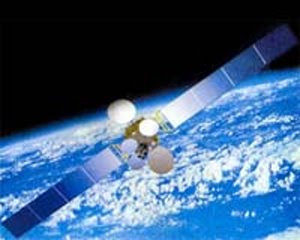
The Nigeria Communications Ltd. (NigComSat) company, the operator of the NIGCOMSAT-1R communications satellite, is set to receive U.S.$550 million equity investment from the satellite’s manufacturer, China Great Wall Industry Corporation (CGWIC), the Nigerian Minister of Communications Adebayo Shittu told Nigerian newspaper Punch on 2 April 2018.
The proposed deal follows previous SpaceWatch.Global reporting that the Nigerian government had been in discussions with China EXIM Bank officials and CGWIC executives about a U.S.$550 million loan to NigComSat, but this has since been rejected since the Nigerian government is unable to put up fifteen percent collateral. Instead, Mr. Shittu has asserted that CGWIC will make a U.S.$550 million equity investment in NigComSat that will cover the construction and launch of two additional satellites for the NigComSat fleet – NIGCOMSAT-2 and NIGCOMSAT-3. CGWIC built NIGCOMSAT-1 which failed in orbit, and its replacement NIGCOMSAT-1R that is currently in orbit.
“In the area of satellite communications, we have one satellite in the orbit. Today, rather than one satellite, we are looking at acquiring two more satellites. We were not only able to get the China EXIM Bank to procure two more satellites, we have got them to agree to fully finance the satellites,” Mr. Shittu told Punch. “It is not a loan. We have a policy of discouraging taking of loans in this government unless it becomes extremely inevitable. For NigComSat 2 and 3, it is not about a loan; it is about equity participation.”
“It is justified in the sense that we are looking at a business, whose potential is limitless if we have these extras. The good thing now is that the company, which is sponsoring it, is bringing the satellites without our government having to spend a kobo. They are coming in with those two satellites as their equity participation in the running of NigComSat-1R,” Mr. Shittu added.
The Nigerian government has now created a committee that will evaluate the worth of all of NigComSat’s ground and orbital assets in order to calculate the equity stake equivalent to U.S.$550 million that CGWIC will take in the Nigerian company.
“We will have to quantify all the ground equipment and one satellite. The two satellites they are bringing in cost $550m. Now, we will have to quantify the cost of one satellite that we have and the cost of the ground infrastructure. A committee is looking into all of that before we sign the deal,” Mr. Shittu said.
Should the CGWIC equity investment proceed the two additional satellites will allow NigComSat to provide coverage of the entire African continent.
“By the time we acquire those two satellites, we will have the capacity to cover the whole of Africa. We will also get customers from outside the country. Today, millions of dollars are being spent on satellite companies abroad. Customers do not have confidence in a company that has only one satellite,” said Mr. Shittu to Punch.
“We had NigComSat-1, which crashed. If we don’t have a backup, naturally people will not have confidence because they will think that, if they put their data in it, it can crash and they will lose all their data, and that is why they go overseas. I believe that if we have a backup (this is a big business), we can have the whole of the African continent and even beyond as a potential market,” he added.
Satellite communications market analysts argue, however, that the African satellite communications market has excess capacity, with operators such as Intelsat, SES, O3B, and Eutelsat already serving the market with the latest generation of Western-built satellites. Chinese-built satellites, while improving in quality, do not match the performance and reliability of their U.S. and European-built counterparts.
As also previously reported by SpaceWatch.Global, NigComSat has been in discussions with Turkish satellite communications provider, Turksat, to help the Nigerian company develop and expand its business in the crowded African market.





